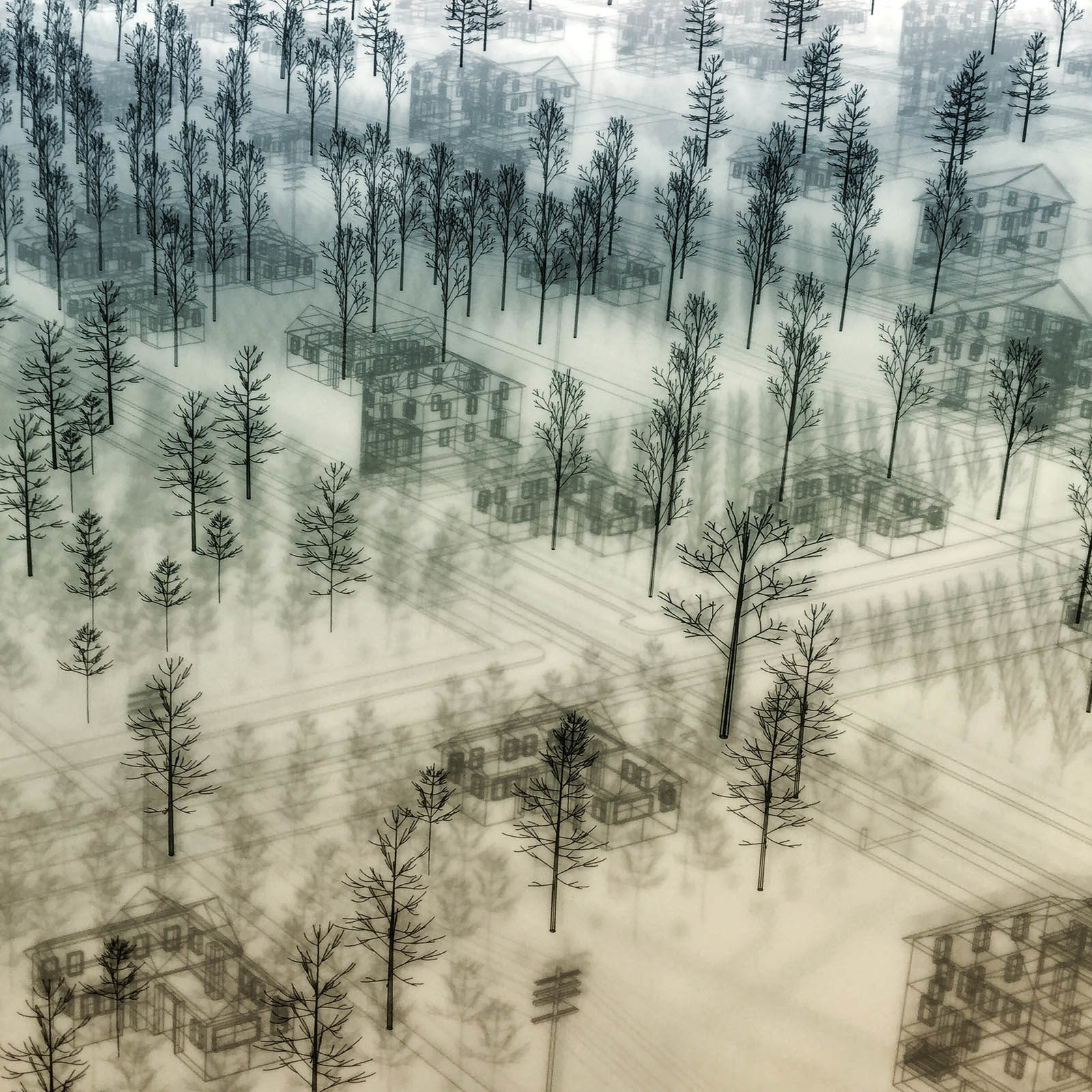Forward from Woodward: Planning New Growth along the American Rust Belt

by Jonah Susskind (MLA ’17) — Recipient of ASLA Certificate of Honor and ASLA Certificate of Merit
Today, after centuries of urban expansion along North America’s coastlines, urban forestry practices have adapted to embrace emerging issues like storm water management, carbon sequestration, and the heat island effect. Nevertheless, in cities like Detroit, where a decline in population has coincided with an equally profound die out of urban canopy, there are important questions about the role of forestry within these so-called shrinking cities.
This project takes industrial timber management as a programmatic starting point for fostering new social, spatial, and economic conditions tuned to the particular challenges of 21st-century Detroit. From the haul road to the buffer strip to the shelter-cut stand, the project borrows forms and stewardship regimes from regional timberlands and uses them to transform defunct residential neighborhoods and municipally neglected “urban voids” into publicly activated, locally managed spaces. By positioning urban canopy as a driver for both infrastructural fortification on one hand and selective decommissioning on the other, the embedded phasing cycles of established forest management practices become an armature for urban development.
This project critiques overly reductive cultural associations between “the productive landscape” and resource extraction. As an alternative, it highlights the regenerative capacity of live matter as a driver for flexible capital production and points to the urban forest as a site for new urban agendas and radical community engagements.